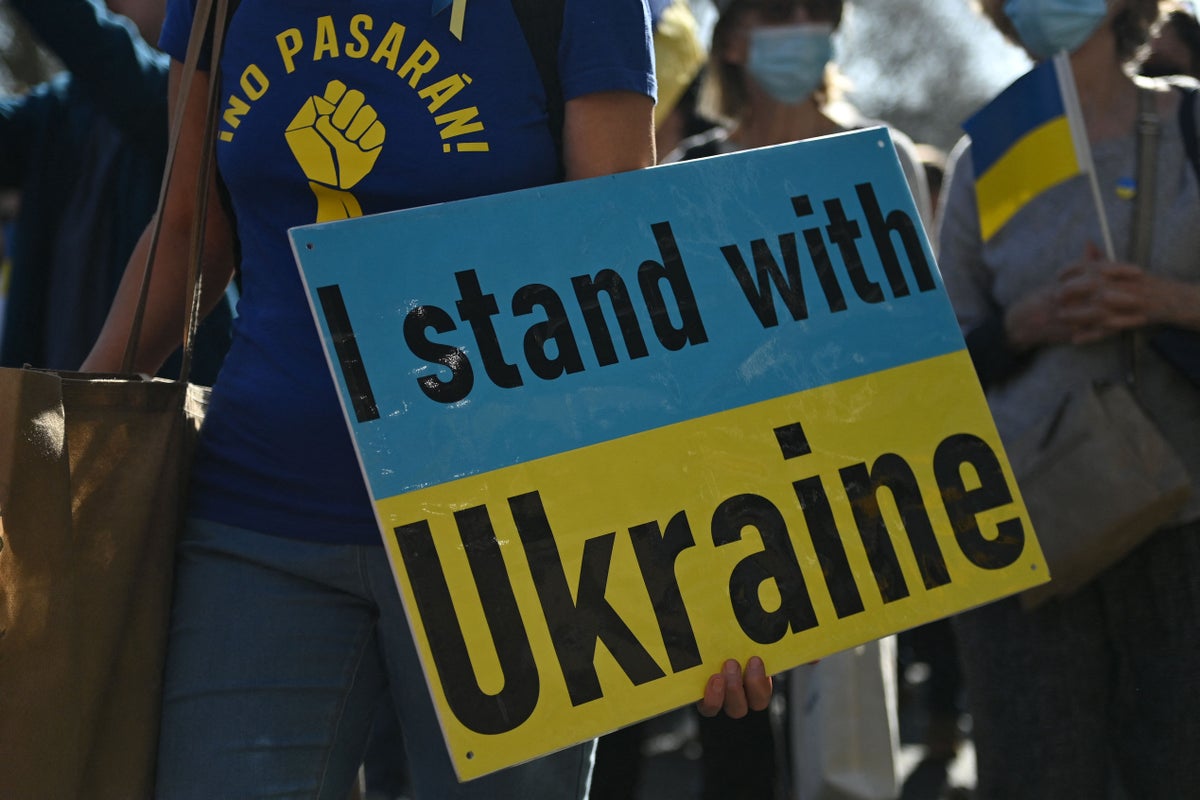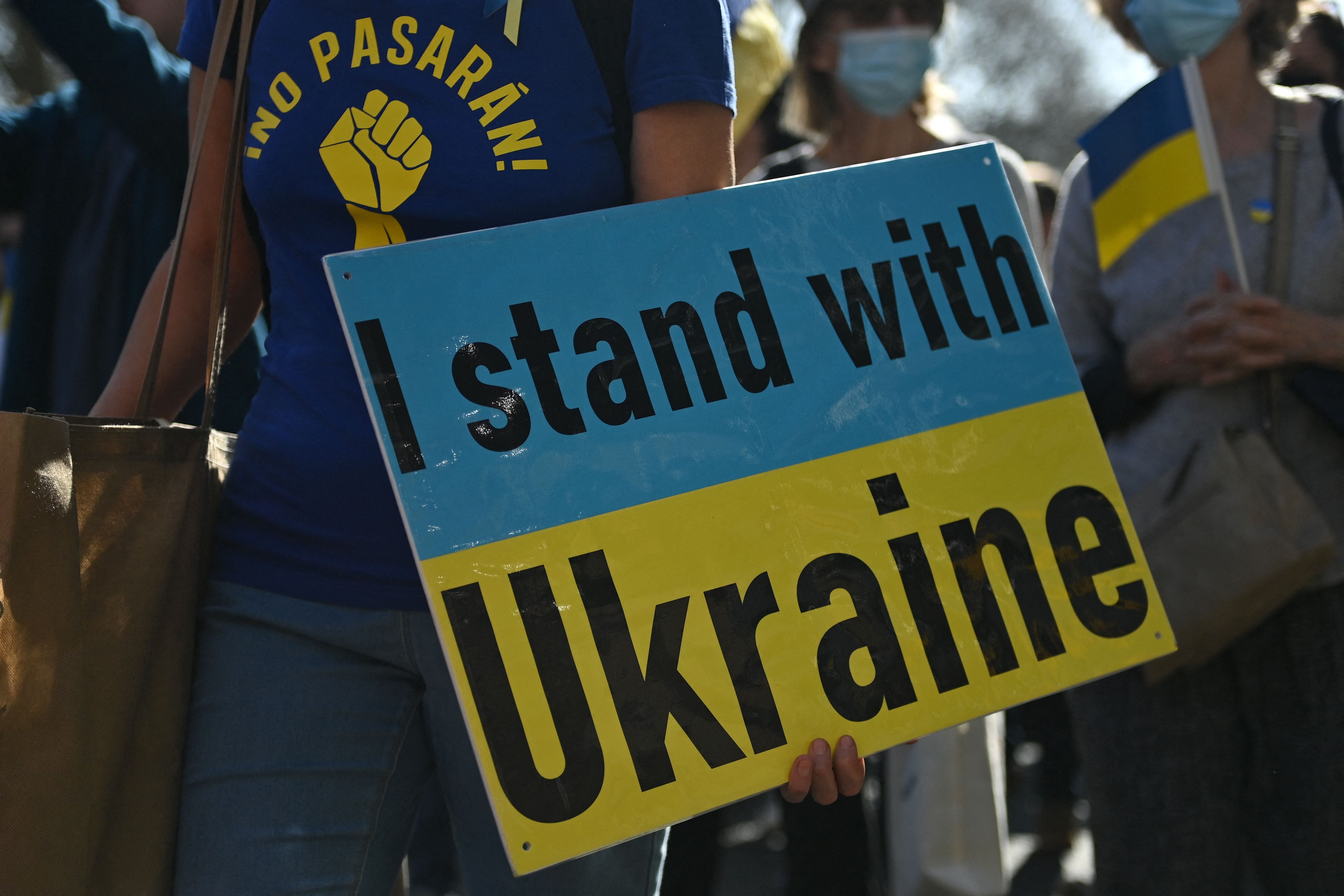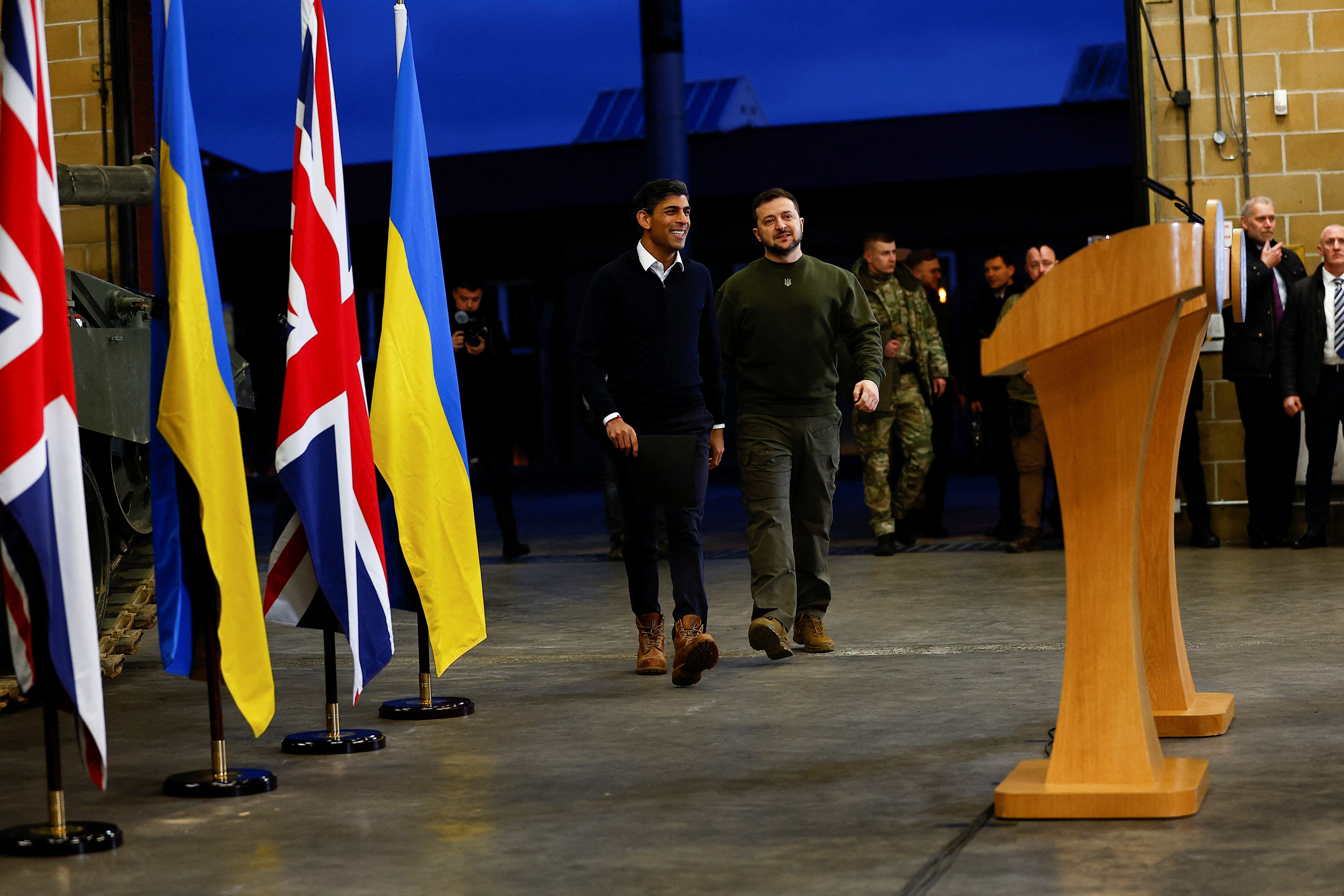
The government must act immediately to help thousands of Ukrainian refugees who are facing homelessness in the UK, a cross-party coalition of MPs and peers has warned.
More than 4,200 Ukrainian households have presented as homeless to English councils since February last year, with 30 per cent of those doing so in the period from November to January.
More than 70 MPs and peers, including the former home secretary Priti Patel and deputy speaker Dame Rosie Winterton, have signed an open letter calling on the government to widen the funding available to sponsors to ensure that no Ukrainian seeking refuge in the UK is left facing homelessness.
The letter also calls for the appointment of a new minister for refugees following the resignation of Lord Harrington. “In the midst of the cost of living crisis there are growing concerns that increasing numbers of Ukrainian arrivals are facing homelessness or destitution,” the letter adds.
MPs also urged the government to consider the policy recommendations put forward by the All-Party Parliamentary Groups for Ending Homelessness, which include increased flexibility in funding for hosts and more money for those on the family scheme. The co-chairs of the APPG, Bob Blackman MP and Florence Eshalomi MP, said “more must be done” to address the crisis.
Ukrainian refugee Anna*, who has a medical degree, came to the UK via Poland in May last year. Since then, she has lived in three different homes with three different sponsors due to the living arrangements breaking down. She had to register herself as at risk of homelessness with her local London council but struggled to get sufficient help from the local authority. She has also struggled to find work or private accommodation.

“My sponsorship is ending next month and I haven’t heard from the council in the last two weeks. I don’t have any opportunity to live independently at the moment so I am looking for a new sponsor. The council said they would help me look but that doesn’t guarantee that they will find any. Previously, at the end of May, when I was in a similar situation, they told me that I should look for a sponsor myself,” she told The Independent.
Anna had to leave her second sponsorship after she found a month’s work project in a different part of the UK. The host wouldn’t let her hold onto the placement while she was away, she explained. Her first sponsorship broke down when the landlord told her sponsor he didn’t want any refugees in his property.
“I struggle to rent anywhere privately because I need deposits and a guarantor who would sign on the contract. Nobody wants to rent to people on benefits. It’s the same problem that local UK people have with renting but just double it for people who don’t speak English that well,” she added.
She said her ordeal has affected her mental health. “My journey to the UK already traumatised me and I am very grateful for my life here but sometimes I am finding it hard,” she said.

The number of Ukrainian families facing homelessness in England has increased by 44 per cent over the winter months as sponsorship arrangements continue to break down. As of November 2022, 199,500 visa applications had been granted to Ukrainians under the family scheme or the sponsorship scheme.
The Independent has previously revealed that some Ukrainians are facing a very real choice between becoming homeless in the UK or returning to their wartorn country. Councils offer a varying range of support across the country, despite their legal obligations to house Ukrainians if they do not have anywhere to live.
In one case, Ealing council told a 23-year-old woman that it was unlikely to be able to help her because she did not have “severe health needs”. Thousands of Ukrainians have also been placed in hotel accommodation by councils which are struggling to deal with the rising number becoming homeless.
Mr Blackman and Ms Eshalomi said: “As we approach a year since the Russian invasion of Ukraine, it is unacceptable that thousands of people who arrived in the UK to escape the conflict are now facing homelessness.
“While the announcement of continued funding under the existing schemes for both sponsors and refugees is welcome, more must be done to prevent increasing numbers of Ukrainian refugees from being forced into homelessness.”
Matt Downie, chief executive of homelessness charity Crisis, said that the “severe shortage of affordable housing” is preventing Ukrainians from moving on from sponsorships and rebuilding their lives. “We urge the government to consider implementing changes to the existing schemes, as well as the introduction of a dedicated refugee resettlement strategy,” he said.
A government spokesperson said: “We are giving councils more resources to help them address these challenges. For those on the Homes for Ukraine scheme, we are providing councils with per-person funding, as well as £150m to support guests into their own homes and £500m to find housing, and we also extended and increased ‘thank you’ payments for sponsors to try to ensure sponsorships last as long as possible.”
* Anna’s name has been changed







